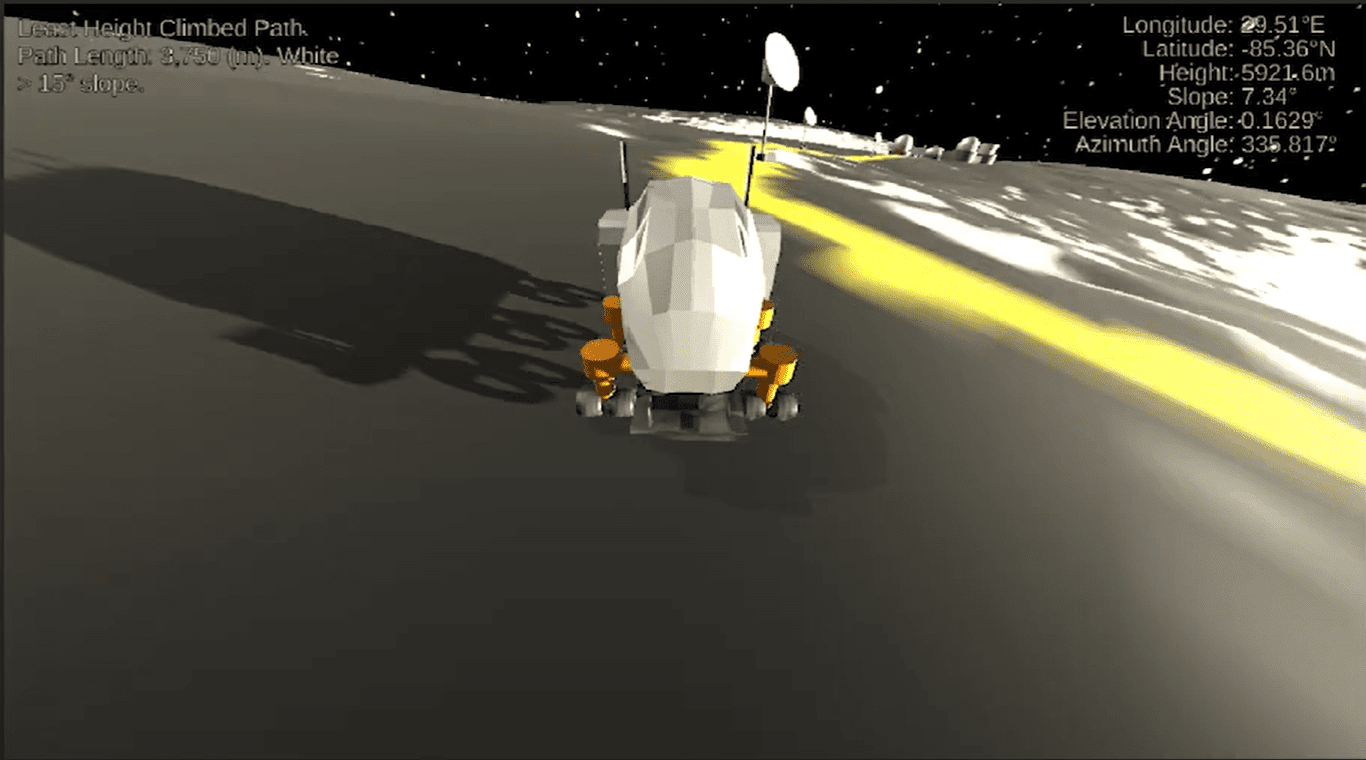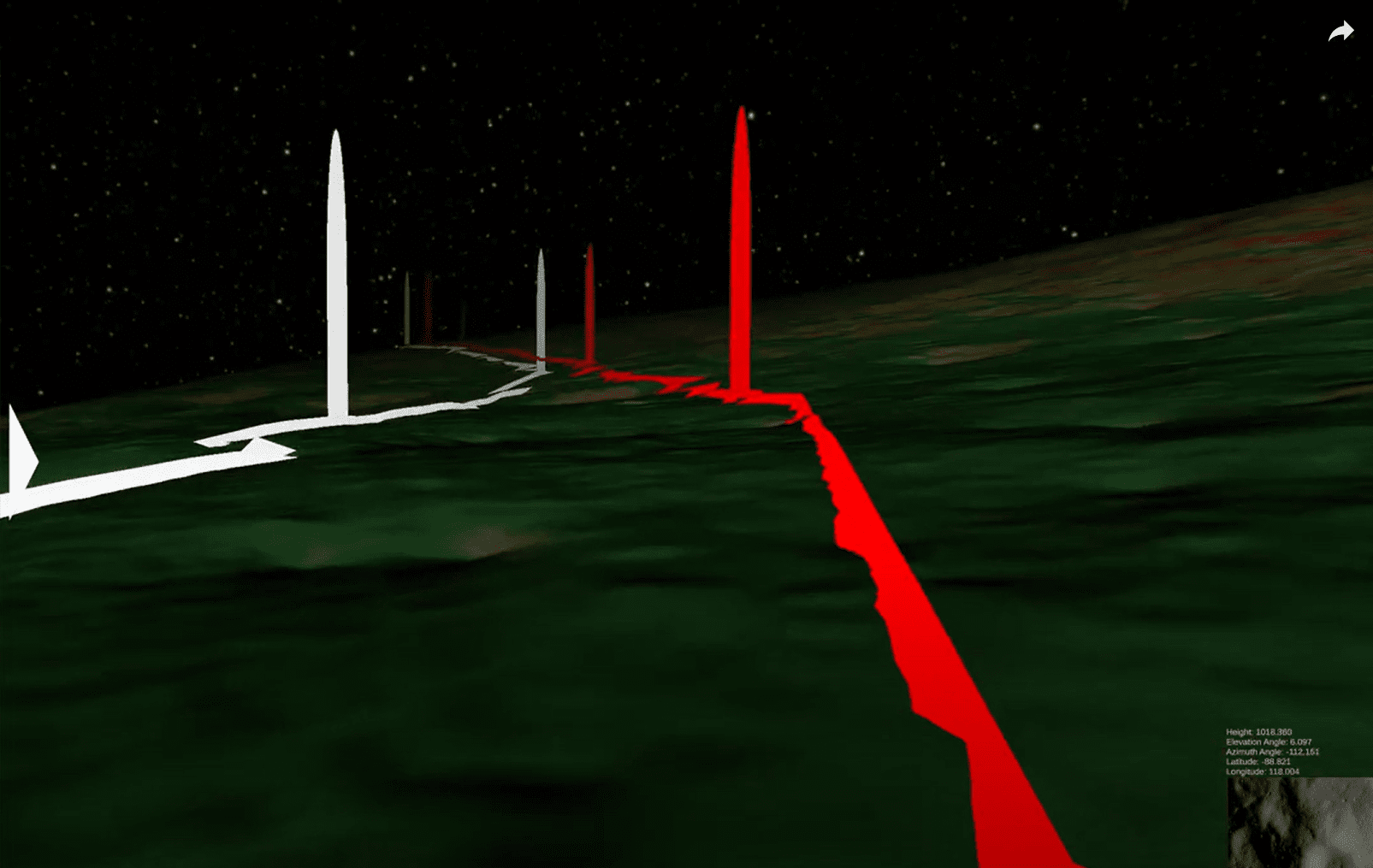NASA’s Office of STEM Engagement has selected seven student teams to participate in a culminating event for the 2024 App Development Challenge (ADC), one of the agency’s Artemis Student Challenges , at NASA’s Johnson Space Center in Houston. The coding challenge invites middle and high school student teams to contribute to deep space exploration missions by developing solutions to real-world technical problems.

The ADC, a part of NASA’s Next Gen STEM project , gives students an opportunity to participate in NASA’s endeavors to land American astronauts, including the first woman and the first person of color, on the Moon. Artemis Generation students are prompted to create an application to visualize the Moon’s South Pole region and display essential information for navigating the lunar surface and receiving signals from Earth. NASA will make history by sending the first humans to explore the region near the lunar South Pole on Artemis III.
“Working on this application gave us a simplified understanding and real-world experience of how professionals approach similar problems in the work-field,” stated Team Frostbyte, from North High School in Des Moines, Iowa, “Engaging in this hands-on project has deepened our passion for innovative utilization of technology. Our participation in this challenge has only further affirmed our goals to pursue careers in these fields.”
Over the 10-week challenge, participating teams joined subject matter expert talks, attended ADC office hours, researched lunar landing regions and mathematical concepts, and spent hundreds of hours coding to develop their applications. Additionally, students learned about the complexities of communicating from the lunar surface with Earth-based assets from NASA’s Space Communications and Navigation (SCaN) team.
The following five teams excelled in their application and interview, thereby earning the chance to showcase their work to NASA leadership, tour NASA’s unique facilities, and meet industry leaders, in April 2024 at NASA Johnson:
- Baton Rouge Magnet High School: Baton Rouge, Louisiana
- Dougherty Valley High School: San Ramon, California
- North High School: Des Moines, Iowa
- Sherman Oaks Center for Enriched Studies: Reseda, California
- Trinity Christian School: Morgantown, West Virginia
In addition, two more schools were selected as honorable mentions to present their work virtually to NASA leadership in April 2024.
- Edison Academy Magnet School: Edison, New Jersey
- Falcon Cove Middle School: Weston, Florida

In addition to being named as Honorable Mentions, Edison Academy Magnet School was awarded Most Realistic Visualization of Technical Features and Falcon Cove Middle School was awarded Best Middle School Team.
“Given that participating in the NASA ADC gave us insights on outreach, technical programming, app development, and working as a team, it has overall made us feel more prepared for future projects and even future jobs,” stated Team Lunarsphere from Baton Rouge Magnet High School in Baton Rouge, Louisiana.
Previous Years
ADC 2023: Artemis Generation Coders Earn Invite to Johnson Space Center
Comments are closed.